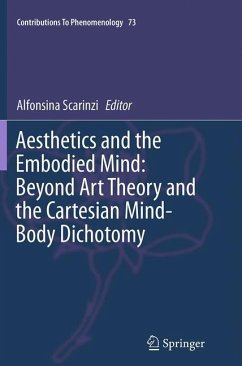
L. Todres
Gebundenes Buch
Embodied Enquiry
Phenomenological Touchstones for Research, Psychotherapy and Spirituality
Versandkostenfrei!
Versandfertig in 6-10 Tagen
Weitere Ausgaben:

PAYBACK Punkte
19 °P sammeln!





Drawing on a particular emphasis within the phenomenological tradition as exemplified by Maurice Merleau-Ponty and Eugene Gendlin, this book considers the role of the lived body as a way of knowing and being within three practical contexts that illustrate some of the nuances of embodied enquiry: qualitative research, psychotherapy, spirituality.
LES TODRES is a Clinical Psychologist and Professor of Qualitative Research at Bournemouth University, UK. His previous occupational roles have included head of a student counselling service and director of a clinical psychology training programme. His career spans both academic and clinical contexts, reflecting his interest in pursuing knowledge and practice that is both academically and professionally integrated.
Produktdetails
- Verlag: Palgrave Macmillan / Palgrave Macmillan UK / Springer Palgrave Macmillan
- Artikelnr. des Verlages: 978-0-230-51775-2
- 2007
- Seitenzahl: 220
- Erscheinungstermin: 31. Juli 2007
- Englisch
- Abmessung: 222mm x 145mm x 17mm
- Gewicht: 367g
- ISBN-13: 9780230517752
- ISBN-10: 0230517757
- Artikelnr.: 22751960
Herstellerkennzeichnung
Springer-Verlag GmbH
Tiergartenstr. 17
69121 Heidelberg
ProductSafety@springernature.com
'Les Todres' Embodied Enquiry is a masterful integration of phenomenological research methods and Eugene Gendlin's Focusing technique. Applicable to a wide range of qualitative research methods, Todres provides qualitative and human science researchers an embodied approach to data collection, analysis, and communication that accesses and invites the deep resources of the human psyche.' - Rosemarie Anderson, Professor, Institute of Transpersonal Psychology, author of Transpersonal Research Methods for the Social Sciences
'Todres's most specific contribution may be his humane and flexible reconceptualization of narcissism as a common human dilemma of how we live with our inherent and shared vulnerability. The broader objective is an
'Todres's most specific contribution may be his humane and flexible reconceptualization of narcissism as a common human dilemma of how we live with our inherent and shared vulnerability. The broader objective is an
Mehr anzeigen
updated and expanded understanding of care and caring relations. Todres achieves a prose style that presents philosophical abstractions in a way that never severs their connection to interpersonal scenes of caring.' - Arthur W. Frank, author of The Wounded Storyteller and The Renewal of Generosity: lllness, Medicine, and How to Live
'With Embodied Enquiry, Professor Todres has demonstrated the unique qualities and strengths of phenomenological investigation. Focusing upon a descriptively-focused exploration centred upon the complexities of lived experience, the book not only succeeds in presenting a clear and insightful account of the ideas and concerns underpinning phenomenological inquiry, it also expresses this way of investigation through the very structure of the text itself thereby permitting readers a lived experience of the particular journeying that this approach can provide. Throughout, Professor Todres' aim is to evoke an inter-relationally grounded humanising quality to investigation - be it that which is undertaken as research or that which underpins psychotherapeutic understanding. This is a wise and exhilarating text. Every chapter contains its surprises and provocations. It deserves careful reading and will surely generate much-needed debate.' - Professor Ernesto Spinelli, School of Psychotherapy and Counselling, Regent's College, London, UK
'Les Todres' masterly and challenging book clarifies, enriches and extends the work of phenomenology in social research particularly when investigating facilitative work concerned with healing and learning. This ground breaking theoretical text provides a solid and, in places, lyrical foundation for future phenomenological texts seeking to safeguard the livedness of lived experience.' - Dr. Peter Willis, School of education, University of South Australia, Australia
'With this impressive publication Les Todres, once and for all, comes to terms with the old dualism that has understood humans as separate and measurable entities. Everyone who reads Embodied Enquiry must see that the human enterprise is so much more than this, whether it is about research and psychotherapy, or other forms of care and social work.' - Professor Karin Dahlberg, School of Health Sciences, Växjö University, Sweden
'this book should present a wealth of material for thought and will undoubtedly act as a catalyst for on-going scholarship...[a] beautifully crafted piece of work.' - Sally Borbasi, The Indo-Pacific Journal of Phenomenology
'In this innovative and readable exploration of research, psychotherapy, and spirituality, Professor Les Todres helps us to appreciate anew our fundamental embodied connection with the world in which we live.' - Steen Halling, Journal of Phenomenological Psychology
'...an inspiring book about the practice of phenomenology in qualitative research, psychotherapy and spritituality...clearly structured and poetically written...Reading the book has been a great joy and a great inspiration and I can highly recommend the book for scholars of all kinds...' - Liz Engel, Forum: Qualitative Social Research
'Although the book will probably be most appreciated by scholars already versed in some phenomenological philosophy, there is a wealth of material and useful, practical examples within the different sections and chapters for novice researchers and for therapists as yet unfamiliar with phenomenology and looking for inspiration...[T]his is a beautifully layered, evocative book each chapter a journey in itself...I have returned to this book many times since its publication, and I will continue to do so, knowing that there will always be more.' - Linda Finlay, TheHumanistic Psychologist
'With Embodied Enquiry, Professor Todres has demonstrated the unique qualities and strengths of phenomenological investigation. Focusing upon a descriptively-focused exploration centred upon the complexities of lived experience, the book not only succeeds in presenting a clear and insightful account of the ideas and concerns underpinning phenomenological inquiry, it also expresses this way of investigation through the very structure of the text itself thereby permitting readers a lived experience of the particular journeying that this approach can provide. Throughout, Professor Todres' aim is to evoke an inter-relationally grounded humanising quality to investigation - be it that which is undertaken as research or that which underpins psychotherapeutic understanding. This is a wise and exhilarating text. Every chapter contains its surprises and provocations. It deserves careful reading and will surely generate much-needed debate.' - Professor Ernesto Spinelli, School of Psychotherapy and Counselling, Regent's College, London, UK
'Les Todres' masterly and challenging book clarifies, enriches and extends the work of phenomenology in social research particularly when investigating facilitative work concerned with healing and learning. This ground breaking theoretical text provides a solid and, in places, lyrical foundation for future phenomenological texts seeking to safeguard the livedness of lived experience.' - Dr. Peter Willis, School of education, University of South Australia, Australia
'With this impressive publication Les Todres, once and for all, comes to terms with the old dualism that has understood humans as separate and measurable entities. Everyone who reads Embodied Enquiry must see that the human enterprise is so much more than this, whether it is about research and psychotherapy, or other forms of care and social work.' - Professor Karin Dahlberg, School of Health Sciences, Växjö University, Sweden
'this book should present a wealth of material for thought and will undoubtedly act as a catalyst for on-going scholarship...[a] beautifully crafted piece of work.' - Sally Borbasi, The Indo-Pacific Journal of Phenomenology
'In this innovative and readable exploration of research, psychotherapy, and spirituality, Professor Les Todres helps us to appreciate anew our fundamental embodied connection with the world in which we live.' - Steen Halling, Journal of Phenomenological Psychology
'...an inspiring book about the practice of phenomenology in qualitative research, psychotherapy and spritituality...clearly structured and poetically written...Reading the book has been a great joy and a great inspiration and I can highly recommend the book for scholars of all kinds...' - Liz Engel, Forum: Qualitative Social Research
'Although the book will probably be most appreciated by scholars already versed in some phenomenological philosophy, there is a wealth of material and useful, practical examples within the different sections and chapters for novice researchers and for therapists as yet unfamiliar with phenomenology and looking for inspiration...[T]his is a beautifully layered, evocative book each chapter a journey in itself...I have returned to this book many times since its publication, and I will continue to do so, knowing that there will always be more.' - Linda Finlay, TheHumanistic Psychologist
Schließen
Für dieses Produkt wurde noch keine Bewertung abgegeben. Wir würden uns sehr freuen, wenn du die erste Bewertung schreibst!
Eine Bewertung schreiben
Eine Bewertung schreiben
Andere Kunden interessierten sich für




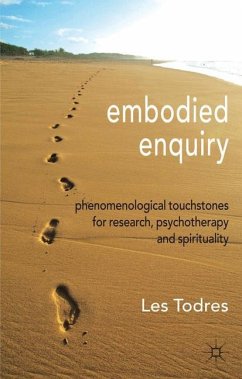
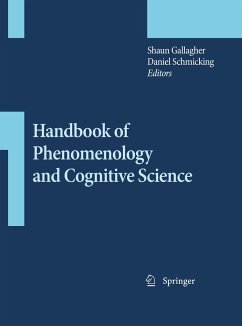
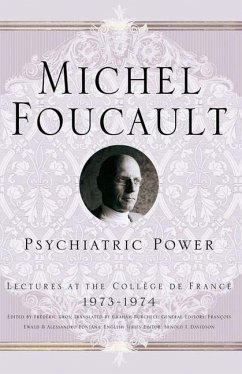
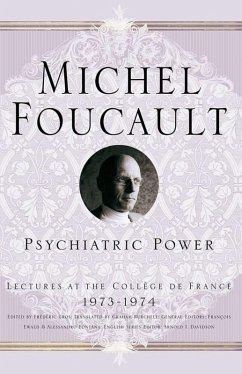
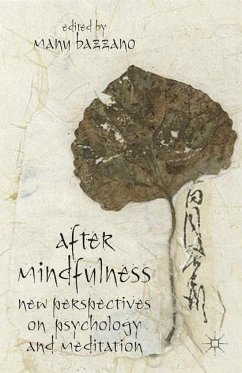

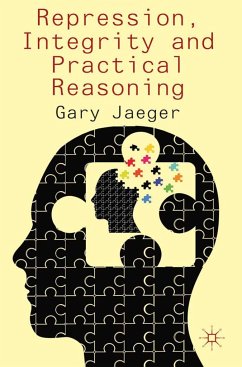
![PHILOSOPHICAL ANALYSES [Vol. II - Part.1] Cover PHILOSOPHICAL ANALYSES [Vol. II - Part.1]](https://bilder.buecher.de/produkte/67/67498/67498290n.jpg)
![PHILOSOPHICAL ANALYSES [VOL. I] Cover PHILOSOPHICAL ANALYSES [VOL. I]](https://bilder.buecher.de/produkte/67/67419/67419058n.jpg)
